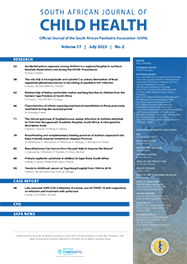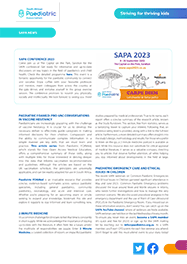Short Reports

Posterior reversible encephalopathy syndrome: Some novel associations
Abstract
Posterior reversible encephalopathy syndrome (PRES) (also called reversible posterior leukoencephalopathy syndrome) is a mostly transient and reversible neurological disorder clinically characterised by headache, seizures, blindness and altered consciousness associated with radiological abnormalities in the posterior white matter. Hypertension has been implicated as the most common association. We report four cases of PRES associated with non-hypertensive causes together with a review of the literature. Two cases occurred following cerebral anoxia due to accidental strangulation and near-drowning, respectively. The third patient, a child known to have E-β thalassaemia, presented with transient encephalopathy following blood transfusion but involving the anterior brain rather than the posterior part classically described in PRES. The fourth patient developed PRES while recovering from toxic epidermal necrolysis syndrome. None of these four cases had hypertension at any point during their illness.
Authors' affiliations
Madhumita Nandi, Pediatrics, Nil Ratan Sircar Medical College, Kolkata
Sumantra Sarkar, Pediatrics, Institute of Post-Graduate Medical Education and Research, Kolkata
Rakesh Mondal, Medical College, Kolkata
Tapan Dhibar, Department of Neuroradiology, Bangur Institute of Neurosciences, Kolkata
Full Text
Keywords
Cite this article
Article History
Date published: 2015-11-06
Article Views
Full text views: 1302

.jpg)



Comments on this article
*Read our policy for posting comments here